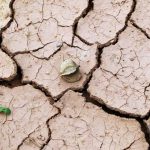Launch of East Africa Economic Outlook Report 2023

African Development Bank published its 2023 East Africa Economic Outlook Report on 27 July,2023 under the theme “Mobilizing Private Sector Financing for Climate Change and Green Growth”. The report delves into the imperatives for a green transition for Africa and the role of private sector financing. It further presents a case for natural capital as a key source of financing for climate-compatible growth in East Africa.
According to the report, East Africa will register the highest regional economic performance in the continent in 2023 and 2024, with growth figures at over 5%. The report projects mid-term economic growth in the region to accelerate to 5.1% in 2023 and 5.8 % in 2024, outpacing all the other African regions. This will be largely driven by growth in Rwanda, Uganda, Ethiopia, Kenya, Djibouti, and Tanzania. The report further outlines four common challenges faced by the region’s economies, which justify a strong, inclusive green growth agenda. They include reliance on agriculture for livelihoods, natural resource dependence, energy, and water scarcity. It further urges East African countries to adapt green growth pathways by tapping into key sectors like renewable energy; sustainable agriculture and infrastructure; and forestry.
Notably, the report states that in 2020, East Africa could only cover 11% of its estimated annual climate financing needs of $67.2 billion, highlighting the significant financing gap challenges for climate change and green growth in the region. African Development Bank Director General for East Africa, Nnenna Nwabufo said during the launch of the report that at least 50% of climate financing will have to be sourced from the private sector.” Some of the interventions proposed to boost private sector participation in green financing include:
- Appropriate regulations, incentives and support for project preparation, as well as the development of strong capital markets that could ease entry and exits by domestic and global investors.
- Use of blended finance, deployment of de-risking facilities at scale, and the development of platforms that can allow the private sector to invest in a portfolio of green projects as opposed to individual projects to diversify and manage risks
- Regional investment in sustainable management of natural capital to create an additional financing option for climate-related and green growth initiatives, which will contribute to reducing poverty and inequality, and supporting job creation and sustainable economic growth.
Borderless. Seamless
At CLA, we are passionate about Africa and our purpose is to grow Africa’s economies, people, industries and markets.
All Insights
All rights Reserved © Citadel Law Africa (CLA) , 2026
Privacy Policy | Designed by sinosoft.guru

